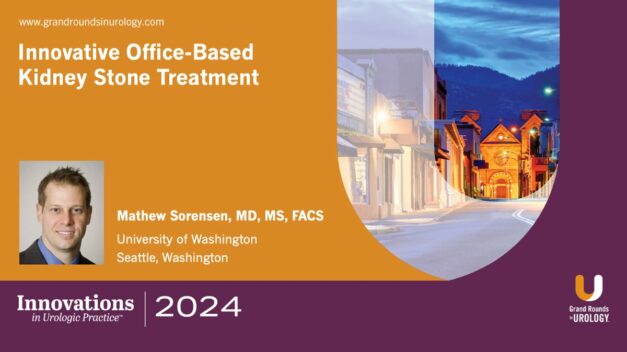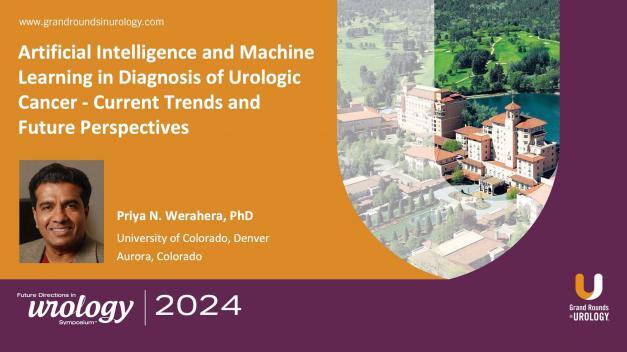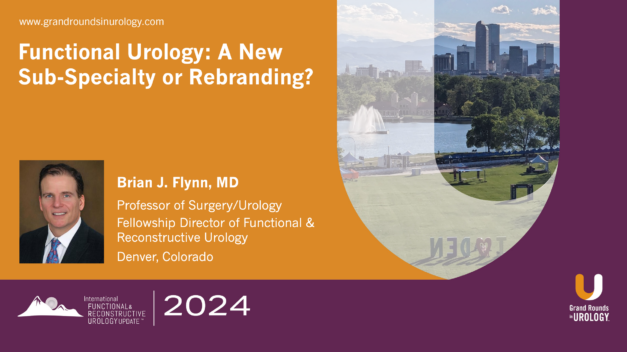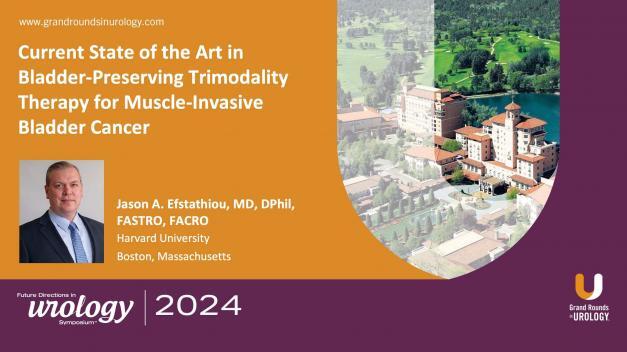Innovative Office-based Kidney Stone Treatment
Mathew Sorensen, MD, MS, FACS, Associate Professor of Urology at the University of Washington in Seattle, examines advances in non-invasive treatments for kidney stones, highlighting two key technologies poised to shift clinical practice. In this 21-minute presentation, he discusses ultrasonic propulsion and then transitions to a second innovation, burst wave lithotripsy. Clinical studies on these technologies indicate a shift toward managing smaller stones and residual fragments more proactively, potentially avoiding more invasive interventions.
Read More




